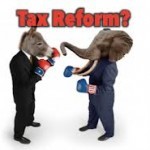
by | May 6, 2013

Last week liberal blogger John Deeth scored an interview with Democrat Rep. Bruce Braley as he embarks on a bid for the U.S. Senate. Though you may not agree with Deeth often on policy (or ever)—he is an excellent writer out of Iowa City and he knows his stuff.
Most of the interview was standard liberal fare (read here), but on the topic of immigration reform Braley made a pair of false claims, the second of which was a real whopper that could haunt him later in this campaign.
Why No Reform?
When asked generally what’s happening with immigration reform and how it will be resolved Braley said this:
“One word has kept us from having meaningful immigration reform, and that word is amnesty. That is always thrown out as an excuse for not moving forward. Where I grew up “amnesty” was where you broke the law and there were no consequences. The reform that I have supported and that many others in both the House and the Senate, Republicans and Democrats support, is something where there is accountability. If you break the law you are required to pay a fine, accept the consequences, be placed on probation, and if you satisfy the terms of your probation you get an opportunity for a pathway to citizenship.â€
So according to him the one word preventing legislation from passing is “amnestyâ€, and moreover Republican confusion on the word’s true definition. Point of correction here—there are two words that explain why no bill has passed and they are “government incompetenceâ€. More specifically the public’s utter lack of faith Washington will deliver on border-security promises has been this efforts downfall, not mere Republican opposition on the merits—allow me to prove the point.
• Though 51% of Republicans oppose a “path to citizenship†in theory and without conditions, when asked about eventual citizenship with the conditions of passing a background and paying back taxes (which are in the bill) a whopping 73% of Republicans said they would support this. (NBC/WSJ 4/5-8/2013) (ABC News here)
• (USA Today poll 4/18-21/2013)—“Which problem concerns you the most: the problem of preventing illegal immigration in the future or the problem of how to deal with illegal immigrants already in the U.S.?” – 55% responded “prevent in future†to 33% “ones already here.â€
• (ABC News/Wash.Post poll 3/27-30/2013)—80% support “stricter border control to reduce illegal immigration in the futureâ€, only 17% opposed. This reflects the findings of several other polls asking the same general question.
• And here is the cementing detail—in most polls a whopping 80% of Americans say they don’t believe the federal government will fully secure the border even if reform is passed that promises it. Only 27% say our borders are more secure than 5 years ago, and pollster Scott Rasmussen conducted a poll in April in which only 9% said our government would succeed in sealing the border.
The Real Problem with Reform
This proves the hurdle facing pro-immigration reform efforts is a glaring lack of credibility by those offering it—Washington politicians. This skepticism is both a hopeful sign and completely logical. It appears Americans are not dense enough to forget the reason we are having this debate now is because true amnesty was delivered in the 1986 Simpson-Mazzoli bill along with promises of border security—and of course since then at least 11 million more individuals have over-stayed visas or snuck into the country. If Bruce Braley really wants to advocate for this bill he better start selling Americans on the specific security measures it contains, and more importantly, admit the ’86 effort was a failure and explain why this time will be different.
While it is true that a decent segment of Republicans will never support a bill that leads to citizenship (about 20-25% in most polls), the real news is that if the feds delivered a secure border going forward over 70% of Republicans would swallow hard and sign on. What Republicans are certain on is that they want the border sealed (supporting this 93% in some polls), and they rightfully don’t envision it happening.
It’s good to know that Mr. Braley has great faith in the federal government—and with its stellar track record who wouldn’t right?—but the fact of the matter is he is way out of touch with the vast majority of Americans who have a microscopic level of faith in the federal enterprise. When you look at the situation it’s hard not to notice the delicious bit of irony that liberal Democrats would be able to accomplish a major political goal of theirs relatively easily—if only the behemoth institution they built and believe in was a capable and trusted one.
He Said What?
Now on to the real stunner offered by Braley in the interview. Extolling the virtues of passing a bill he said the following:
“So that says to me that reasonable people should be able to get their handle on how we bring people out of the shadows, get them paying taxes at the state and federal level, paying into Medicare and Social Security, to stabilize those programs. To me there’s a lot of huge upside benefits.â€
Yes you read that correctly and yes this is fully in context. We’ve heard some real beauties from Liberal Democrats recently—“we don’t have a spending problemâ€, unemployment checks “create jobs faster than any other initiative you can name” etc.—and this one ranks right up there.
You see the solvency problems we have with Social Security and Medicare can be addressed by legalizing 11-15 million illegal aliens, the vast majority of which are low-income earners. I honestly don’t even know where to begin with this. Let’s start with some statistics on the population we are talking about that even the most partisan wouldn’t dispute, after all illegal immigrants aren’t “doing the jobs Americans won’t†because they pay too well:
• Average median family income for non-citizen in 2010= $36,401 compared to $50,288 for native born Americans (2010 US Census)
• Per person median household income for non-citizen=$12,991 compared to $28,185 for American citizens (though this is a CIS study, an anti-amnesty group, the numbers are similar to less partisan studies)
• 24.8% of Hispanics (citizens and non-citizens) are living at the poverty level (2010 Census via government office of OMH)
• Hispanics in the U.S. are the single biggest group currently without health insurance with 30.7% uninsured (Office of OMH)
Look, there are several legitimate positive arguments for granting citizenship to this group—some cultural and some economic—but implying that 11-15 million low-income workers being legalized will help any entitlement program is absurd. And to be clear this has nothing to do with ethnicity, it would apply to any group with similar income traits if they hailed from Canada, Australia, or Europe instead of Mexico.
The only conceivable way Braley’s statement could be parsed to have a shred of truth is if he was referring only to the small number of years after legalization was granted and before benefits were claimed. I know politicians are accustomed to thinking one election cycle at a time, but even still this level of short-sighted deception would be off the charts. There is no question whatsoever that the net impact of legalizing up to 15 million low-skilled, low-wage earners would be a mid and long-term disaster to the existing entitlement system. Period. You don’t have to be a mathematician to figure this out—especially considering that not one of these programs is even currently solvent.
Ironically, after citizenship is granted Social Security and Medicare would lose the only current benefit these two programs are receiving from illegal immigration—the taxes that go to these programs via fraudulent Social Security numbers that go unclaimed by the illegal immigrant and instead get paid out to American citizens. Democrats are right in making the case this specific reality is unfair to the immigrant, but in a perverse way it does mathematically help the system.
Furthermore, entitlements already pay out more to citizens on average than each citizen pays in. As it stands now a typical retired couple pays in $122,000 to Medicare and on average can expect $387, 000 in benefits, for Social Security it’s $600,000 in and $579,000 out (Ezra Klein site here). Obviously these discrepancies would be multiplied for this illegal population for two reasons. First the median family income for illegals is between $15-20,000 less than the median American citizen family income, and second, obviously, this population would not have been paying in their entire lives yet would receive benefits until their deaths (Politifact deals with a similar scenario here).
Final Word & A Challenge to Democrats
Braley’s claim here is totally ludicrous and false—and if he’s seriously only referring to the period before we pay any benefits out and is ignoring the eventual consequences, it is even more ridiculous and disingenuous. I challenge any Liberal/Democrat writer or policy wonk in the state of Iowa to explain how amnesty for illegal immigrants would be a “huge upside benefit†that will “stabilize†any one of our entitlement programs, and I will even grant you the waiver that you don’t have to deal with the disaster that will become of Medicaid. This is an open and standing challenge. Write it, send it to the contact info on this site, and I will print it in full.
I know Bruce Braley is desperate to sell this immigration reform bill, but claiming this federal bill will “stabilize†other insolvent federal train wrecks from the past was a bridge way too far. He will have to explain this on the campaign trail, it will come up in debates and TV spots, and it will not help his chances. It’s a long time till November 2014 and if he continues making undisciplined remarks he can’t back up—and wouldn’t want to try even if he thought he could—then he is more vulnerable than I ever thought.

by | May 4, 2013
 From this point forward the Republican quest to replace Tom Harkin just got more interesting. With King removed from the picture the next batch of announcements we get will be declarations and not withdrawals.
From this point forward the Republican quest to replace Tom Harkin just got more interesting. With King removed from the picture the next batch of announcements we get will be declarations and not withdrawals.
I was never one to think Republicans needed King in the race to win the seat, and in fact have been lukewarm on his chances. I truly believe that a relative newcomer on the scene has a better shot at shoring up the base while still pulling a majority of Independents–which in turn will bring victory.
Prediction wise, don’t be surprised if the list of candidates who decide to run is very, very short. I would not be shocked if only 2 names of the 6 or so being thrown around run in the end…and I swear don’t rule out Bob Vander Plaats.
Below is Steve King’s full statement:
Dear Friends,
I want to thank all of my friends, family, advisors and supporters who have put so much time, thought, prayer, and effort into helping me make a decision on whether to run for the United States Senate. I sincerely thank every potential candidate, all of whom graciously gave me room to decide. Probably no one in America, considering such an opportunity, enjoys as clear a path to the nomination. It is an extraordinary opportunity that will not be repeated in millions of lifetimes.
I have said from the beginning this decision requires “the head, the gut, and the heart†to line up together. I have done due diligence and evaluated the race from a statewide, objective perspective. I have talked with hundreds of supporters…and some detractors. I sincerely thank all of you who have helped in so many ways.
My analytical part, the head, tells me the race is winnable and must be won in 2014 or a generational opportunity could be lost. I have said a race for the Senate is “a slight up hill battleâ€. It is, but it’s “no hill for a climberâ€.
The question I am answering today is, “What is my duty?†I believe my duty is to utilize the honor of serving Iowans in Congress by maximizing my effectiveness. I owe it to all Iowans and Americans to give you my best effort and best judgment.
We have in front of us in Congress a series of potent issues which will redirect the destiny of our state and nation. Among them are a farm bill, ObamaCare, debt and deficit, immigration, and tax reform. If I step away from these responsibilities while campaigning in an effort to multiply leverage in the Senate, what becomes of our nation in the mean time?
This week, I made a simple device to put toothpaste back in the tube. But a device to put the Leftist genie back in the bottle is not so simple. The best tool we have now is the majority in the U.S. House which functions mostly to keep the Leftist genie in the bottle. I cannot, in good conscience, turn my back on the destiny decisions of Congress today in order to direct all my efforts to a Senate race for next year, while hoping to gain the leverage to put the genie back in the bottle in 2015.
The most timely and conclusive piece of advice I received crystallized my decision. A friend, whose 77th birthday is today, said to me, “I will support you whatever you decide to do. If you decide to run, don’t be a reluctant candidate.†If I said, “Yes†to a Senate race, I would be a reluctant candidate because of the reasons I’ve written above.
Accordingly, I will not be a candidate for the United States Senate in 2014. It is my intention to turn my efforts and energy with great vigor to the issues at hand. I anticipate being on the ballot for reelection to the U.S. House, Fourth District of Iowa. It is a challenging and rewarding job that I enjoy. My sincerest thanks to all involved.

by | Apr 23, 2013
 Lt. Gov. Kim Reynolds has announced she is not running for the open US Senate on November 4th 2014. The field will form quickly once Steve King makes a decision, which for the good of the Party should come one way or another very soon. Some prior analysis of this race by The Conservative Reader: Iowa can be read here. Her complete statement is below:
Lt. Gov. Kim Reynolds has announced she is not running for the open US Senate on November 4th 2014. The field will form quickly once Steve King makes a decision, which for the good of the Party should come one way or another very soon. Some prior analysis of this race by The Conservative Reader: Iowa can be read here. Her complete statement is below:
Dear Friends,
When Governor Branstad chose me as his Lieutenant Governor in 2010, I was honored to be a part of a team that would put our state back on track with a focus on job creation, making our schools the best in the nation, and restoring stability and predictability within Iowa’s budget.
Thanks to your support and your help, we are well on our way. We inherited a $900 million budget gap and turned it around into a significant ending balance. Our innovative education reform measures continue advancing through the Legislature, and once signed into law, our students will receive the world-class education they deserve. This year, we expect to enact major property tax reforms that will reduce property taxes for all classes of property.
I am proud to Chair the Governor’s Science Technology Engineering and Math (STEM) initiative, where thousands of Iowa students are gaining the knowledge and skills they need to compete in a 21st Century economy.
And just today – the Governor and I attended a groundbreaking for a new Facebook facility, while Google announced another multi-million-dollar expansion. Since the governor and I were elected, we have seen more than $6 billion in capital investments in Iowa – and we are just getting started!Governor Branstad and I still have a lot we want to accomplish on behalf you, the people of Iowa.
That’s why, after serious and thoughtful discussions with family, friends, supporters and constituents, I have decided to remain as Lieutenant Governor and will not seek a seat in the United States Senate.
I appreciate all the support, prayers and well-wishes you have given me as I have considered a run for U.S. Senate. I truly believe that my focus needs to remain on being Lieutenant Governor and working with Governor Branstad as we continue to move Iowa forward.
Thanks, and I look forward to visiting with you in your community soon.
Sincerely,
Lieutenant Governor Kim Reynolds

by | Apr 23, 2013
 Despite both Parties rhetoric to the contrary, I am hearing the chances of any significant Commercial Tax Reform in Iowa is dwindling.
Despite both Parties rhetoric to the contrary, I am hearing the chances of any significant Commercial Tax Reform in Iowa is dwindling.
Though legislation has passed each chamber, the Conference Committee tasked with finding a compromise both sides are comfortable with will struggle mightily. This is largely due to the fact that the structure for reforming the tax code that passed by each chamber are not compatible with each other. While Senate Democrats are insisting on a tax credit formula which businesses apply for and are granted, the House Republicans and the Governor want changes to the percentage assessed values are taxed at as well as lower caps on local property taxes.
I highly doubt that either side will give much on their chosen structure for reform, and it is hard to imagine a combination of these approaches being melded together without a confusing mess being created. Additionally, as desperate as Republicans are to deliver lower taxes to their constituents, there is a feeling in the caucus that passing a half-measure now will make it harder to re-visit the issue in future sessions to achieve their true goal. Conversely, Democrats would not mind getting their tax credit approached passed and fighting future battles with Republicans on increasing the value of the credits as they come up.
The Big Picture
After essentially controlling Iowa government for years with only a Senate majority, I don’t see anyway that House Republicans and Gov. Branstad can cave and allow Democrats to dictate the structure of tax reform–the one issue Republicans unquestionably own over Democrats.
As I’ve said here before, I do believe that Sen. Gronstal has a stronger hand than many realize. Much like the Fiscal Cliff debate late last year where Congressional Republicans were forced to give in, Iowa Republicans are in the same tough position of seeing taxes rise if nothing is done. This fact transfers a significant amount of leverage to Senate Democrats and Sen. Gronstal is operating accordingly. As long as Senate Democrats perceive they can hold a majority while taxes rise this is the posture that Republicans will face. Looking long term, if Republicans are unable to extract major compromises from Democrats in the conference Committee–which I don’t expect–I am comfortable with once again waiting on a bill altogether.
Though it will be harder than in 2012 and is far from a given, with Branstad on the ballot in 2014 there is a shot at winning the Senate and a likelihood of holding the House. If a bill was done with Republicans holding both chambers and the Governors office clearly the dollar amount and scope of tax relief be much larger. Perhaps more importantly there would also be a significant flat tax component and an opportunity to end the system of automatic future tax increases we have now. The leverage that would be gained in future partisan tax scuffles by doing so would be worth it’s weight in gold.
Research and House Majority Leader Statement
The main bill in focus can be read here (SF 295)…and by the way I dare anyone to read this bill and tell me we can’t find a better way to write tax policy. In contrast, here is the Dix/Whitver optional Flat Tax bill offered earlier this session (SF 443). Should this approach to our taxes be taken most citizens interaction with the tax code could be limited to lines 1-35 of this bill. A welcome thought to a large majority regardless of Party.
Below is the full release from House Majority Leader Linda Upmyer regarding this topic:
Delivering significant property tax relief to the hardworking taxpayers of Iowa has been one of our top priorities since gaining the Majority three years ago. Each year we have passed numerous proposals to the Senate, but unfortunately have not been able to reach a consensus. I am optimistic that this will be the year for true reform.
This week the House passed a comprehensive tax relief proposal that provides significant property tax relief across Iowa and helps reduce Iowans’ income taxes. The bill, SF 295, does not shift the tax burden between classes of property, but instead ensures that relief and reform is permanent, predictable, meaningful, and affects all classes of property. If no action is taken on property tax relief, Iowa’s taxpayers are staring down the barrel of a $2.6 billion property tax increase over the next 10 years, with the majority of that falling to homeowners.
Under our current state tax structure, residential property taxpayers pay approximately half of Iowa’s property taxes. While our proposal provides property tax relief across all classes of property, residential property taxpayers would benefit the most under this plan.
Currently, in terms of K-12 school funding, the state covers 87.5% of the school foundation formula. The remaining amount needed for our schools to operate falls on the backs of local property taxpayers. Our proposal increases the amount of state aid going to our schools and decreases the reliance on local property taxes. As a result, local property taxpayers will be protected from future tax increases.
Our proposal would also implement a 20 percent rollback of taxable value on commercial and industrial property, which would occur over a period of four years, at five percent each year. This would provide approximately $339 million in property tax relief when fully implemented. Additionally, our plan would include a standing unlimited appropriation to backfill lost revenue from the rollback to local governments.
As previously mentioned, the bill also aims to reduce Iowans’ income taxes by giving individuals a choice to file under the current system or to use a 4.5 percent flat tax option. This legislation makes Iowa’s tax system simpler, flatter, and fairer. Under this proposal, each taxpayer is given a choice that will enable them to do what makes the most sense for their own household budget.
Finally, our proposal would send dollars back to Iowa taxpayers that have been collected in the Taxpayer Trust Fund. Only after the Legislature and Governor have agreed to a final budget that meets the priorities of Iowans and funds the state’s obligations, any excess revenue would be returned to Iowa’s hardworking taxpayers.
SF 295 passed the House with bipartisan support and was sent back to the Senate for their consideration. We look forward to continuing this discussion, listening to all ideas and proposals, and are hopeful a resolution will soon be reached that provides much-needed and real tax relief to all Iowans.

by | Apr 16, 2013
 Question: What has happened so far at the Statehouse this session?
Question: What has happened so far at the Statehouse this session?
Answer: Mostly a whole lot of nothing.
With potentially as little as three weeks left before they gavel out this has been one of the most uneventful sessions since I began following them closely. There could still be some fireworks in store as the larger ticket items get discussed, but as it stands now nearly everything Governor Branstad has signed into law has been with near unanimous consent from both Parties. In fact, of the 36 bills he has signed so far most have been technical or clerical items passed with no dissent—and all but a couple have had no more than 3 no votes between the two chambers (notable exceptions being SF 184 and HF 160).
Conservatives Left with Little to Cheer About
The fact that divided government is not producing sweeping changes is hardly surprising, but getting no movement whatsoever on traditionally non-entrenched ideological issues is disheartening. For me personally these disappointments include the first funnel costing any chance of banning Automated Traffic Enforcement and the second funnel claiming the Voter ID bill. Both these issues have a clear majority of public support (Voter ID routinely gets well over 70% in public polls), and despite this couldn’t even receive the dignity of a vote.
Additionally, the Education Reform effort (yes, even the version the Republican House passed with no inter-Party dissent) is a “solution†few true Conservatives can embrace. Firstly, it is dumping $200 million more dollars into a system that already has received a 35.4% funding increase since 2002—with no discernible benefit in most districts. And secondly, the kind of actionable teacher evaluation, similar to what exists in the private sector, is nowhere to be found. Instead, in my view, what this reform offers is a largely a bunch of feel good jargon about “laddersâ€, “career pathwaysâ€, “mentorsâ€, and “master teachersâ€â€”now does that sound like a recipe for fixing a failing school?
In some way this issue has been absurdly overcomplicated, how about teachers just teach kids the information in their textbooks like miraculously you were able to do in the 1990’s and we’ll call it even. In fact, prove you can do so and we will give you a nice raise…you know the way it has worked for all the rest of us in the private sector since our birth.
While it is true that many strong home schooling amendments got passed by the House, A) the big ones won’t make it to the Governor’s desk, and B) even if they did it still wouldn’t make this effort worthwhile. And while there are a few bright spots (HF 625 which expands STO’s), there was no movement of Sen. Zaun’s proposal last session to give parents true schools choice, nor was there any effort made to ensure we have strict 3rd grade retention for reading proficiency.
Tax Reform the Big Prize…But Likely to Elude Again
Just like last session, there was talk by both sides at the beginning that something needed to get done here, but the writing is on the wall that it won’t.
Largely this is because the players and the policies they are pushing for are essentially unchanged from last year. Additionally I am starting to think that Sen. Gronstal knows he controls only one branch—but perhaps has the trump card in this standoff.
The way I have started to look at this is to see the similarities between this situation and the fiscal cliff scenario faced by Republicans on the Federal level at the end of last year. If you recall, Republicans were forced into caving because the specific position they were in—if no deal was struck taxes on everyone in the country would go up on January 1st. Similarly, here in Iowa if nothing gets done our tax rates will continue to climb—a reality that would surely bother Republicans more than Democrats. Not only does this give Gronstal more leverage in cutting a deal to avoid the tax hikes, if he can manage to stave off a deal until rates are raised he is in the position of deciding then who “deserves†tax cuts. As frustrating as this tactic is for Republicans, as long as high taxes don’t cost Democrats their majority it is truly brilliant politics.
The Truth As I see ItÂ
I would love to be able to say everything is looking up here in Iowa and nationwide, but the evidence disagrees. Coming off a brutal performance last November when Mitt Romney was unable to defeat a president with a terrible record and Republicans failed to take the Iowa Senate, we are now seeing the results. This legislative session is almost a mirror copy of the last and the chances of anything passing at all are slim–and unfortunately the chances of passing any significant Conservative policy is hopeless. Simply put, at the moment the landscape is virtually barren when it comes to potential political victories.
Elections indeed have consequences–and Conservatives are feeling them now. We must do better as a Party going forward–2014 awaits and brings another chance to make a profound and positive legislative impact.









